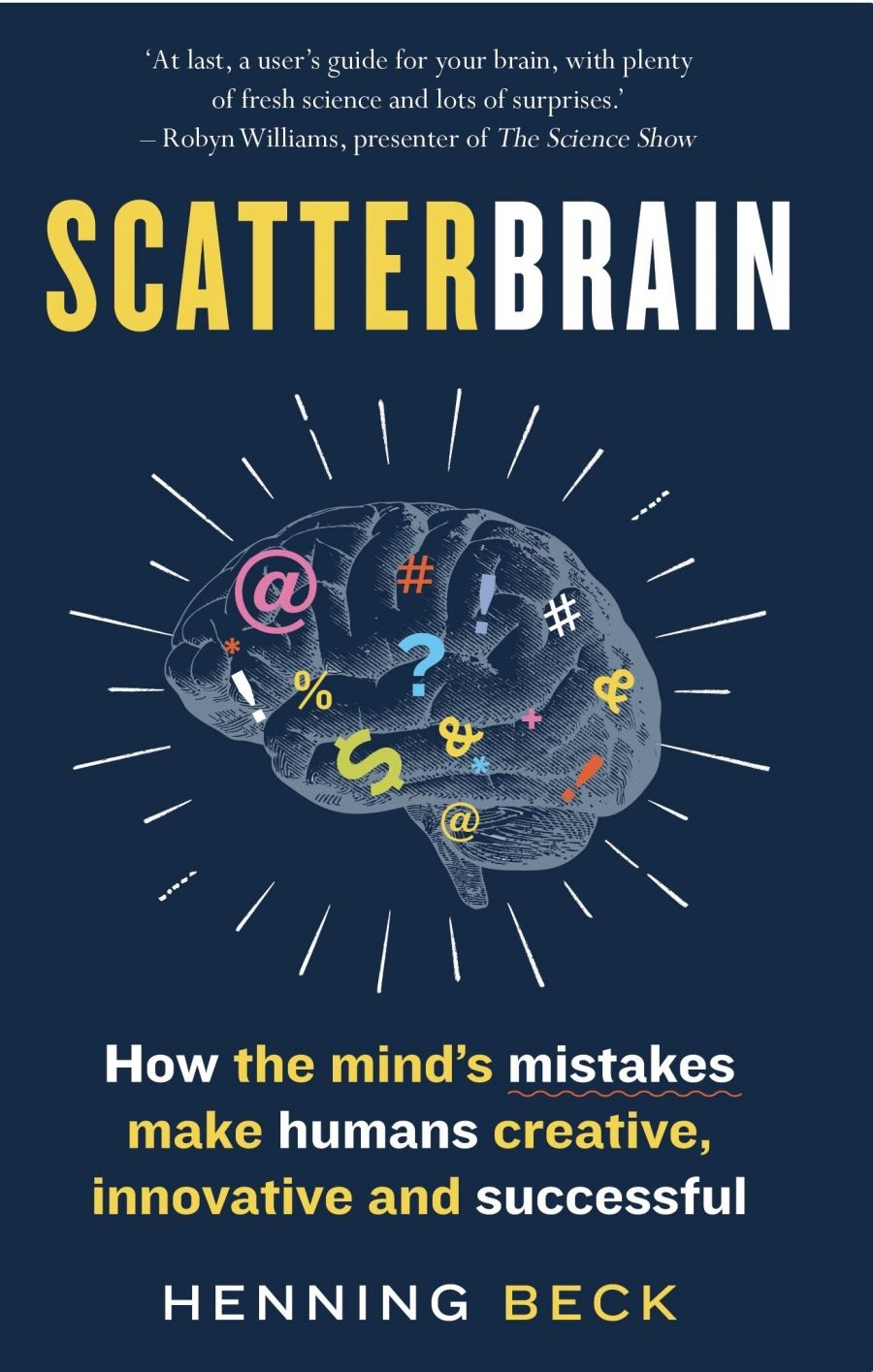
- Free Article: No
- Contents Category: Science and Technology
- Review Article: Yes
- Online Only: No
- Custom Highlight Text:
Once, when we humans reflected on what made us special, we latched on to those qualities that distinguished us from the rest of creation. We were smarter, more rational, more cognitively capable. The philosopher Joseph de Maistre, for example, proposed that ‘the concept of number is the obvious distinction between beast and man’. More recently, with the onrush of the digital age, we have come to feel less confident in our mental powers. We may understand numbers better than other beasts, but our phones can carry out arithmetic calculations at inconceivable speeds and beat the brainiest among us at chess.
- Featured Image (400px * 250px):

- Book 1 Title: Scatterbrain
- Book 1 Subtitle: How the mind’s mistakes make humans creative, innovative and successful
- Book 1 Biblio: NewSouth, $29.99 pb, 336 pp
Rather than concede mental superiority to computers, we must find new ways to define our human specialness. We decide that it is human to err and reach for an assortment of Romantic virtues that we believe we embody but that machines unerringly lack: emotion, imagination, creativity. In Scatterbrain, German neuroscientist Henning Beck extols these virtues as inherent capabilities of brains, which, although they may appear to fall prey to countless errors and biases that do not trouble computers, are in fact better adapted to the changing demands of everyday life. Our mental foibles make us more fit for purpose than any app or algorithm.
Beck lays out the evidence for this bold claim in fourteen chapters that range far and wide over cognition, emotion, and motivation. He explores the deficiencies of memory and learning – the fallibility of our recall and our struggles with rote memorisation – but argues that we are better for having a cognitive system that is flexible, dynamic, and constructive rather than a flawless archive of facts. As he observes, ‘The brain is not a data storage device.’ Similar analyses of our elastic and imprecise senses of time and number suggest that our apparent biases and inaccuracies enable us to form memories and judgements that capture what matters. In a rapidly changing environment, where context is crucial and complexity is ever-present, we need minds that generate plausible understanding, not exact information.
Beck moves beyond the realm of cognition to investigate choking under pressure, boredom, distraction, motivation, and stereotyping. His conclusions are almost Panglossian, as if all of our mental frailties were in fact strengths, or at least side effects of strengths. Stereotyping simply reveals a brain that is engineered to seek patterns. Boredom highlights the value of daydreaming. Being distracted by our smartphones demonstrates our curiosity. ‘If we were unable to be interrupted,’ Beck writes, ‘we would, of course, be resistant to distraction, but also to inspiration.’ It is our proneness to distraction and mind-wandering that nurtures our creativity. The concluding chapter on perfectionism continues in this vein to deliver the moral of the story. Seeking perfection works against being adaptable and closes off the opportunity to learn from our mistakes. We should, instead, ‘stay fallible’.
The book has been translated sensitively from the German and extensively retrofitted with Australian references (Leigh Sales is likened to the cingulate cortex). The tone is amiable, steering just to the right side of corny humour. The book is saved from being airport non-fiction by a steady reliance on recent research literature. Beck presents the science lucidly, without needless technical detail and with a gift for apt analogies. He wears his sophistication lightly and the book will speak to anyone with a basic scientific interest. Along the way, the reader will reap a harvest of interesting and often counter-intuitive experimental findings and a smattering of neuroanatomy, such as the medial orbitofrontal cortex, ‘located directly under the glabella, the (usually) hairless area between your eyebrows’.
Scatterbrain is a fine example of the popular neuroscience genre. Even so, its survey of the mind and its peculiarities is perhaps too expansive, whipping through a varied list of topics at great speed. A little breadth might have been sacrificed for depth and a more structured ordering of topics. Chapters also vary substantially in whether they only document our mental limitations or also go on to demonstrate how strengths hide within these weaknesses. Some offer prescriptions for overcoming weaknesses, self-help style; others do not. At times the book seems unsure whether it is an owner’s manual for the brain, a how-to guide for self-improvement, or an argument about the nature of human rationality. It also has two distorting features that typify the genre. For one, it plants a flag on a large quantity of old-fashioned psychology research, examining mind and behaviour without reference to any associated brain processes, and claims it as neuroscience. Perhaps half of the science cited in the book has been given this shiny new materialist branding. In addition, Beck sometimes lapses into homuncular language when explaining what different brain regions do, as if they are tiny people wrestling for control within the skull. Creating a dramatis personae of inner agents is commonplace in accounts of the mind – think of the Superego, the Anima, and the Inner Child – but it is a special problem for attempts to explain how our thoughts, feelings, and actions arise from singular, integrated brains.
Scatterbrain is a reassuring and enlightening read for those of us who lament our sieve-like memories, puny concentrations, and myopic decisions, as well as anyone who feels epistemically threatened by the computer revolution. Computers, Beck says, are fast but stupid rule-followers – merely ‘dumb a little faster’ than they were in decades past – and we humans, slower and more error-prone, have brains that operate in a radically and beneficially different fashion.


Comments powered by CComment